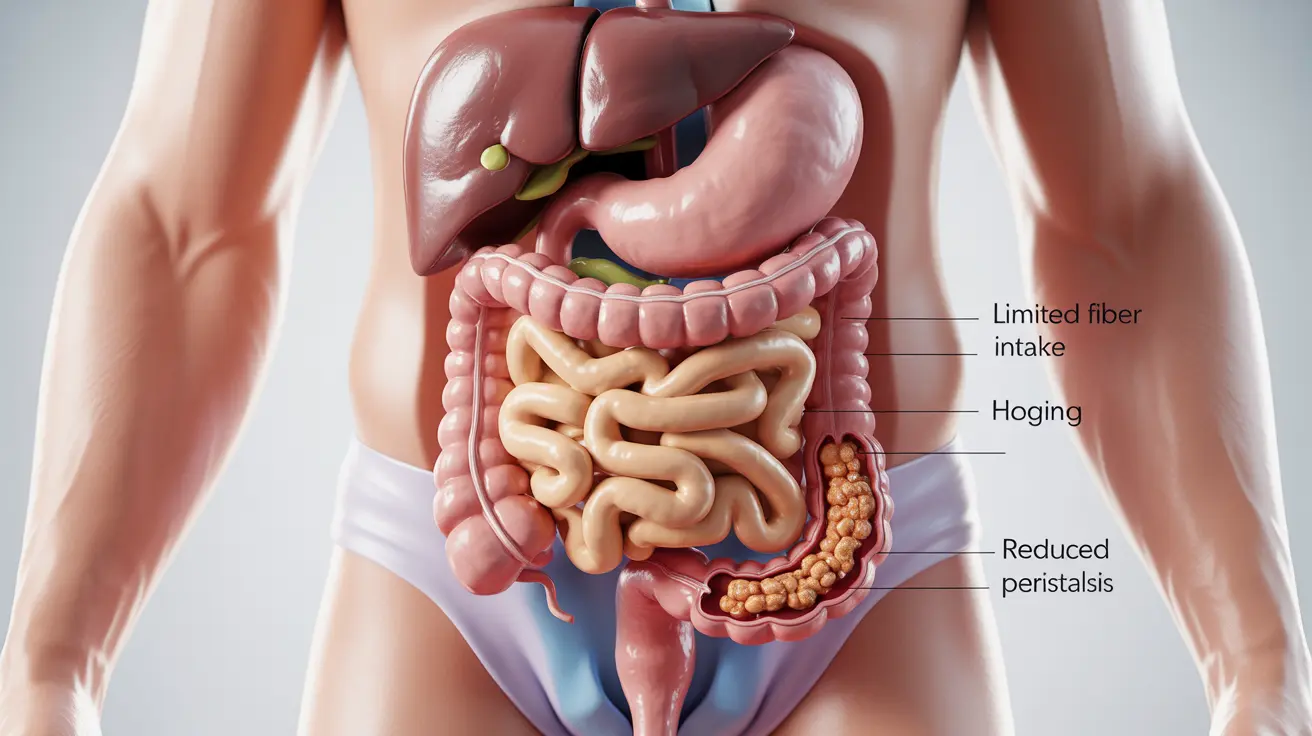The carnivore diet, which consists exclusively of animal products, has gained attention for its potential benefits but also raises concerns about digestive health. One of the most significant challenges that followers of this diet face is constipation, which can lead to uncomfortable complications if not properly managed.
Understanding how this meat-only approach affects your digestive system is crucial for maintaining optimal health and preventing related issues. Let's explore the causes of constipation on the carnivore diet and discover effective strategies for maintaining healthy bowel movements.
Why Constipation Occurs on the Carnivore Diet
The primary reason for constipation on the carnivore diet is the complete absence of dietary fiber, which plays a crucial role in maintaining regular bowel movements. When you eliminate all plant-based foods, your digestive system must adapt to processing only protein and fat, which can significantly alter your bowel habits.
Common Causes of Digestive Issues
Several factors contribute to constipation when following a carnivore diet:
- Lack of fiber and bulk in stools
- Reduced water intake
- Changes in gut bacteria composition
- Slower digestive transit time
- Insufficient magnesium intake
Managing Bowel Health on a Carnivore Diet
While the absence of fiber presents challenges, there are several strategies to maintain healthy bowel movements:
Hydration and Electrolyte Balance
Proper hydration becomes even more critical on a carnivore diet. Aim to:
- Drink adequate water throughout the day
- Include bone broth for minerals
- Monitor salt intake
- Consider electrolyte supplementation
Optimizing Fat Intake
Fat plays a crucial role in maintaining digestive health on a carnivore diet. Ensure you're:
- Including fatty cuts of meat
- Consuming organ meats
- Not trimming away natural fats
- Adding butter or tallow when needed
Preventing Hemorrhoid Development
The risk of hemorrhoids increases with constipation on a carnivore diet. Take these preventive measures:
- Avoid straining during bowel movements
- Maintain regular physical activity
- Practice proper bathroom habits
- Consider using a squatty potty
- Don't ignore the urge to go
Supplementation and Support
While the carnivore diet emphasizes whole animal foods, certain supplements may help prevent constipation:
- Magnesium supplements
- Digestive enzymes
- Bile salts
- Vitamin C (from animal sources)
Frequently Asked Questions
What causes constipation on the carnivore diet and how does it increase the risk of hemorrhoids?
Constipation on the carnivore diet primarily occurs due to the absence of dietary fiber and potential dehydration. When stools become harder and more difficult to pass, the increased straining during bowel movements can lead to hemorrhoid development by putting excessive pressure on the blood vessels in the rectal area.
How can I prevent or manage constipation while following a carnivore diet?
To manage constipation, focus on staying well-hydrated, consuming adequate amounts of fat, maintaining electrolyte balance, and considering supportive supplements like magnesium. Regular physical activity and proper bathroom habits also play crucial roles in prevention.
What are the common symptoms of hemorrhoids that may develop from constipation on a meat-only diet?
Common hemorrhoid symptoms include itching, pain, or discomfort around the anal area, bright red blood during bowel movements, and swollen tissue around the anus. These symptoms may be more likely to develop when constipation leads to straining during bowel movements.
Is it possible to have healthy bowel movements on a carnivore diet without fiber?
Yes, it's possible to have healthy bowel movements without fiber, but it requires careful attention to hydration, fat intake, and mineral balance. Many people report that their digestive system adapts after an initial adjustment period, though individual experiences vary.
What dietary changes or supplements can help reduce hemorrhoid symptoms caused by the carnivore diet?
To reduce hemorrhoid symptoms, consider increasing fat intake, supplementing with magnesium, ensuring adequate hydration, and possibly including digestive supports like bile salts or enzymes. If symptoms persist, consult a healthcare provider for personalized recommendations.




